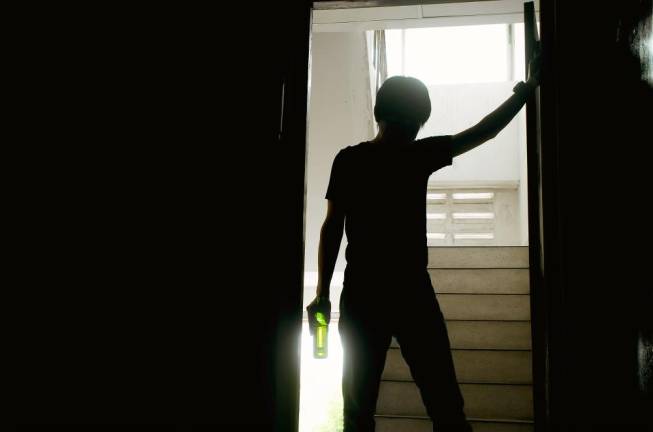Hidden addictions: Expert warns Pennsylvanians that lockdowns may reveal undiagnosed narcotic and alcohol addictions
Public health. Isolation and loneliness could trigger a surge in relapses. Boredom is identified as one of the main triggers.

As many of us have been instructed to remain isolated in our homes for the foreseeable future, some Pennsylvanians have to deal with recovering from substance addictions on top of the additional panic over the COVID-19 pandemic. American Addiction Centers, the leading provider of substance abuse resources, has warned how isolation and therefore loneliness could trigger a surge in relapses for those in recovery. Moreover, they say that for people who regularly drink alcohol or partake in drug use as a social activity, being unable to do so may also bring to light underlying substance addiction problems, which is a real challenge to face while self-isolating.
Being sociable is what humanity is all about; it’s why we meet for lunches, coffees, dinners, drinks, in restaurants, cafes, bars... but our biggest raison d’etre has currently been removed from us during one of the biggest health crises of our lives. Living in lockdown in Pennsylvania is, temporarily, the norm, and we have gone from seeing dozens of others daily, to just a handful. As a result, experts are concerned that right now, our otherwise excusable habits - a glass of wine at lunchtime, a couple of Martinis before dinner, followed by a fine bottle of red - might conceal a hitherto-undiagnosed dependency, even addiction.
As our social lives have come to a standstill in terms of physical interactions, some people might discover they have an underlying substance dependency during self-isolation, which may have previously been camouflaged by an external social life. For example, in the past these people may have partaken in regular excessive drinking or drug consumption in the company of their social group. Because social gatherings are now prohibited during this time, they may discover that when they are alone, their dependency on alcohol or drugs might become more apparent.
One of the most common symptoms of people who suffer with a drinking problem is denial; they simply refuse to accept they have a dependency, and this can be the reason they don’t seek proper treatment. Other symptoms include rationalizing the amount of alcohol they consume; blaming their consumption on others; and defensiveness or dismissiveness. However, there is one symptom of addiction that simply cannot be ignored – withdrawal. With the closure of restaurants, bars and other establishments that serve alcohol, some people may come to the uncomfortable realization that they have an unhealthy relationship with alcohol.
The other issue at stake during lockdown is that self-isolation and social distancing may lead those in recovery (of both alcohol and drugs) to relapse. Now that the days and weeks seem endless, there is more temptation for them to turn back to their former crutches to try and cope with boredom, solitude, fear and panic. This period of social distancing can play a part in bringing up past memories of isolation during the active addiction stage, which can be extremely tough to deal with, especially if recovering individuals are living alone. It is important to be able to distinguish between the isolation that is linked to active addiction – this is rooted in shame, sadness, and the substance itself. In comparison, the isolation that may result from social distancing is a short-term disruption to our daily lives, which will ultimately benefit society in the long run.
In the U.S., many liquor stores remain open during self-isolation, however, when it comes to drug dependencies, withdrawal symptoms may be more evident during this time as dealers have less access to potential customers. This means a majority of drug users – unless they have stockpiled the substance – will go without. But there is a ray of hope. A lack of availability can help uncover a harsh reality and optimistically, trigger the individual to reach out for help.
Often, those who are unknowingly dependent on alcohol or drugs – or those who are not ready to admit it – do not have an accurate picture of the amount they consume. Drinking or doing drugs on a regular basis causes the body to become tolerant to the substance. After a while, the feeling accomplished with a certain amount of the substance (perhaps two beers or a few puffs of a joint), requires more to reach and this only escalates as time goes by. Your body will eventually become acclimated to a particular amount of substance and if you stop consuming it, you will experience withdrawal symptoms. Depending on how much of the substance your body is dependent on, decreasing your use can result in a host of symptoms, which are incredibly difficult to overcome, such as anxiety, nausea, tremors, seizures and in extreme cases, death.
But help is at hand, whether you’re new to the path of recovery, or have had your route temporarily disrupted. Thankfully, there is online technology available today, such as support chatrooms, forums and hotlines you can access if you are feeling vulnerable or afraid of relapsing.
American Addiction Centers has provided a wealth of information on its site for Pennsylvanians who are suffering withdrawal symptoms, or who are concerned about relapse:
● Advice on addiction, isolation, and loneliness: River Oaks Treatment Facility: riveroakstreatment.com/drug-addiction/isolation-and-substance-abuse
● Keeping sobriety during a pandemic: American Addiction Centers: americanaddictioncenters.org/blog/keeping-sobriety-during-a-pandemic
● Coronavirus (COVID-19) and alcoholism: Alcohol.org: alcohol.org/resources/coronavirus-and-alcoholism
● What to do during COVID-19 Isolation: American Addiction Centers: americanaddictioncenters.org/blog/covid-19-isolation
● Overcoming thoughts of relapse during social distancing and isolation: National Rehabs Directory: rehabs.com/tips-for-overcoming-thoughts-of-relapse-during-times-of-coronavirus-social-distancing-and-isolation